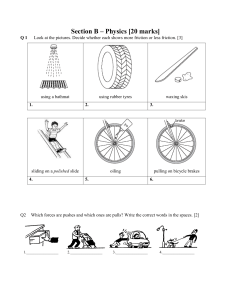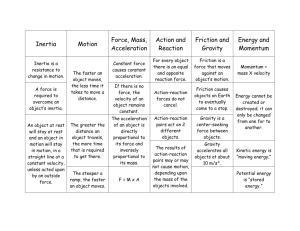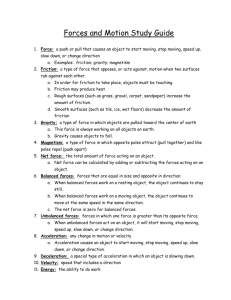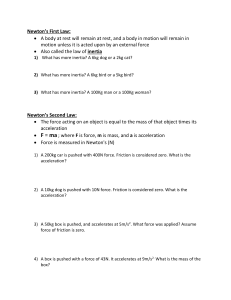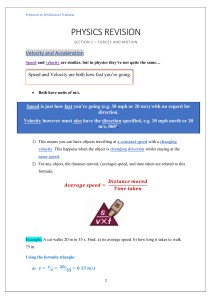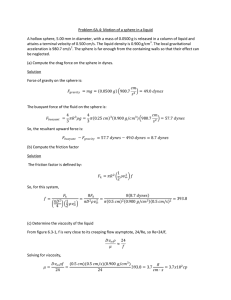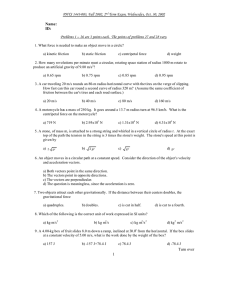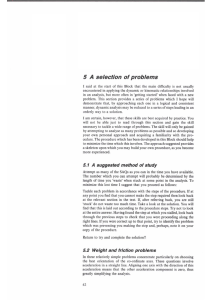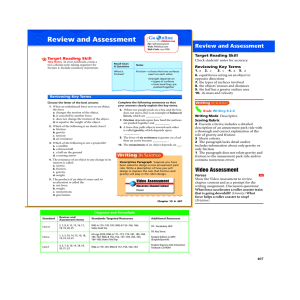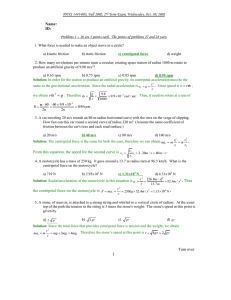Newton's Laws of Motion Review Guide - Physics
advertisement
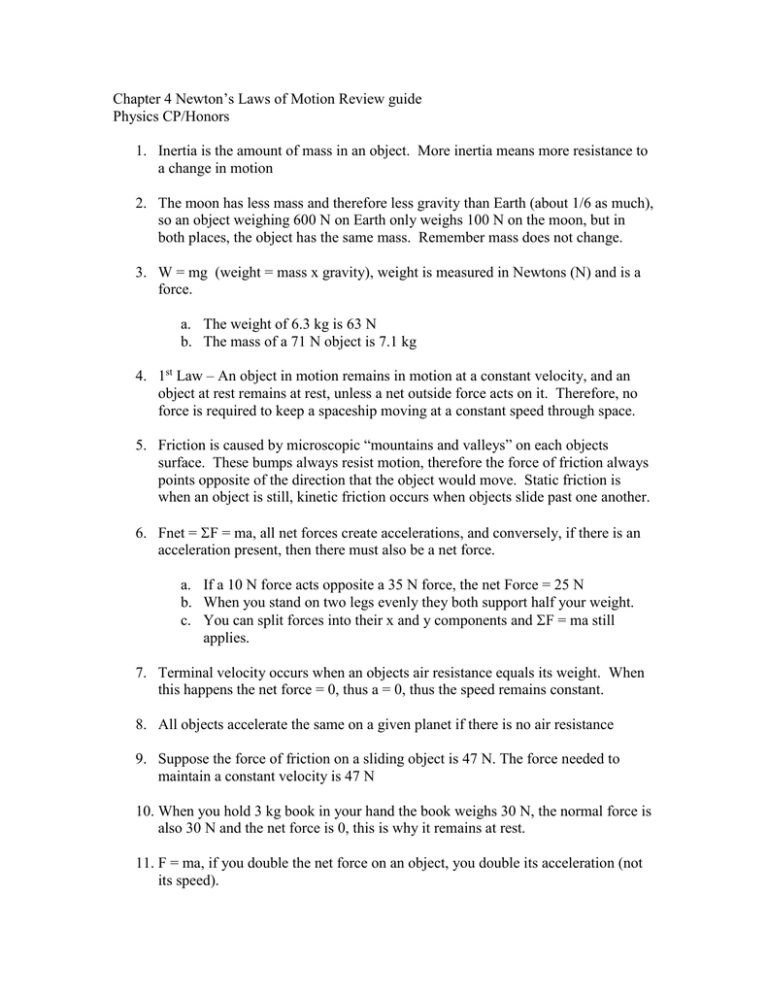
Chapter 4 Newton’s Laws of Motion Review guide Physics CP/Honors 1. Inertia is the amount of mass in an object. More inertia means more resistance to a change in motion 2. The moon has less mass and therefore less gravity than Earth (about 1/6 as much), so an object weighing 600 N on Earth only weighs 100 N on the moon, but in both places, the object has the same mass. Remember mass does not change. 3. W = mg (weight = mass x gravity), weight is measured in Newtons (N) and is a force. a. The weight of 6.3 kg is 63 N b. The mass of a 71 N object is 7.1 kg 4. 1st Law – An object in motion remains in motion at a constant velocity, and an object at rest remains at rest, unless a net outside force acts on it. Therefore, no force is required to keep a spaceship moving at a constant speed through space. 5. Friction is caused by microscopic “mountains and valleys” on each objects surface. These bumps always resist motion, therefore the force of friction always points opposite of the direction that the object would move. Static friction is when an object is still, kinetic friction occurs when objects slide past one another. 6. Fnet = F = ma, all net forces create accelerations, and conversely, if there is an acceleration present, then there must also be a net force. a. If a 10 N force acts opposite a 35 N force, the net Force = 25 N b. When you stand on two legs evenly they both support half your weight. c. You can split forces into their x and y components and F = ma still applies. 7. Terminal velocity occurs when an objects air resistance equals its weight. When this happens the net force = 0, thus a = 0, thus the speed remains constant. 8. All objects accelerate the same on a given planet if there is no air resistance 9. Suppose the force of friction on a sliding object is 47 N. The force needed to maintain a constant velocity is 47 N 10. When you hold 3 kg book in your hand the book weighs 30 N, the normal force is also 30 N and the net force is 0, this is why it remains at rest. 11. F = ma, if you double the net force on an object, you double its acceleration (not its speed).
